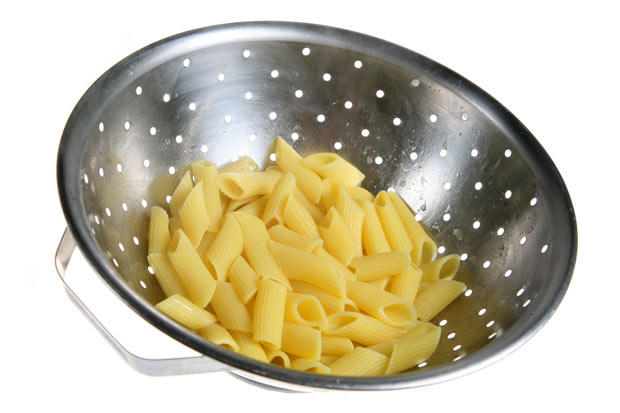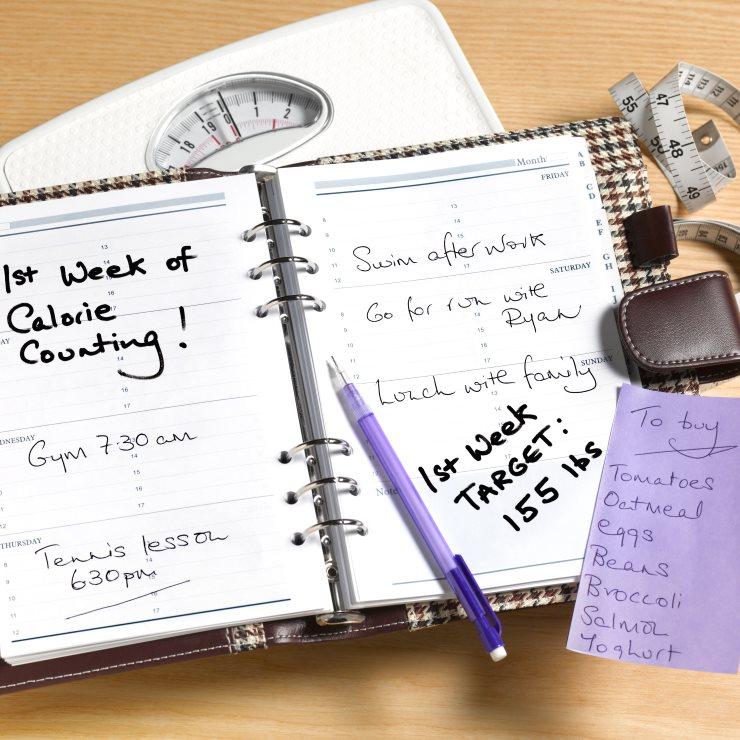How to Lose Weight and Help Accelerate the Metabolism
Many people say they want to lose weight, but few remember to improve their metabolism. Metabolism is the process by which you convert food into energy for your body.[1] You have probably heard people say they have a slow metabolism or a fast metabolism. This is usually their explanation for why they can either gain weight easily or eat whatever they want without gaining weight. While the rate at which your metabolism runs is based on genetics, there are some ways you can speed up your metabolism which may help you lose more weight.[2] Be sure to improve your diet and change your lifestyle in order to lose weight.
Steps
Method 1 Improving Your Diet
-
1
Eat a healthy breakfast. Starting your day with a healthy meal sets an important tone for the rest of your day.[3] Studies have found that eating a breakfast low in sugar and refined grains while being high in protein is the best way to increase your energy levels and boost metabolism. The following are good ideas for simple, healthy breakfasts:
- 2 scrambled eggs with ¼ cup of 1% cottage cheese
- 2 boiled eggs sliced with 2 pieces of whole-wheat toast
- 1 cup of plain nonfat Greek yogurt mixed with 1 cup of raspberries
- 1 cup of a fiber cereal with ¾ cup of fat-free milk
-
2
Cook with chili powder or peppers. Adding chili powder to your food can improve your weight loss and metabolism. It contains compounds called capsicums that are shown to improve metabolism for a short period of time after eating.[4] Studies have shown that eating just 5 grams of chili pepper can increase your metabolism for up to 30 minutes.[5]
- Try adding chili powder to meat and vegetables to get this important compound.
-
3
Eat more fiber. Include at least 30 grams of fiber in your diet every day to help you lose weight. Fiber has also been shown to help improve your blood pressure and blood sugar.[6] Try to get your fiber from food, rather than supplements. Good sources of fiber include:
- Cereals: oatmeals, whole-grains, brown rice
- Vegetables: spinach, broccoli, carrots, green beans
- Legumes: beans (kidney, lima, chickpeas)
- Fruits: dried fruit (prunes, raisins), pears, apples, banana
- Nuts and seeds: peanuts, popcorn, almonds
-
4
Add cinnamon and ginger to your food. These spices have been shown to help with weight loss because they relieve muscle soreness after intense exercise.[7] Exercise is important for weight loss. But, some people do not exercise nearly as much as they should because of muscle soreness following workouts. Try adding cinnamon and ginger to fruits or smoothies, especially after exercising.
- Some claims have also been made that cinnamon can help boost your metabolism, although this is still being researched.
-
5
Eat more lean protein. Protein is an important nutrient needed for muscle growth, which will increase your metabolism. Metabolism increases when your body has a higher amount of lean muscle. To increase your lean muscle, exercise and diet are important. Try to eat a minimum of 0.8-1.2 grams of protein per kilogram of body weight.[8] (One kilogram is equal to 2.2 lbs.) For example, a person who weighs 150 lbs weighs 68 kgs. (150/2.2) This person should eat a minimum of 54-82 grams of protein each day. (68 x 0.8 = 54) (68 x 1.2 = 82)[9][10]
- Make sure that the protein you add to your diet comes from a lean protein source like chicken or turkey breast, low-fat dairy options, or egg whites.
- Avoid protein that adds a high amount of saturated fat to your diet like fatty meats or high fat dairy options such as fatty steak, high-fat ground beef or turkey, whole milk, and cheese.
Method 2 Changing Your Lifestyle
-
1
Calculate your metabolic rate. Our bodies burn a certain number of calories each day in order to properly function. This amount of calories burned at rest is termed Basal Metabolic Rate (BMR). To find out your BMR, you can use an online calculator which will ask for your ask, gender, height, weight, and activity level. The calculator will show you the number of calories you burn based on a low, light, moderate, high, or very high activity level. This will show you how many calories your body burns a day.[11]
- BMR does not take into account the amount of calories you burn through activity such as exercising or just walking around each day, so make sure that's factored into your calculation.
-
2
Calculate and reduce your calorie intake. If you want to lose weight, you first need to reduce the amount of calories you eat each day. Use the number you calculated from your Basal Metabolic Rate with the activity factor and subtract 500 calories. Eat this amount of calories each day and you will lose about 1 pound each week.[12]
- To make it easier to track your calories, use an online calorie tracker such as MyFitnessPal,[13] FitClick,[14] or the USDA Food Tracker.[15] These online trackers have large databases to help you find out the calorie information on the foods that you eat.
-
3
Eat regular meals. Skipping meals can raise your blood sugar and delay insulin responses.[16] Do not skip any meals throughout the day. Instead, eat every 3 to 4 hours to help boost your metabolism. Eating more frequently throughout the day can lower your risk for obesity.[17]
- Remember to eat breakfast. It wakes up your metabolism after fasting overnight. Studies have found that those who skip breakfast on average weigh more, have diminished mental function, and do not get as many essential vitamins and minerals.[18]
-
4
Drink more coffee. Drink 1 to 2 cups of coffee a day to improve your metabolism. Just make sure not to add lots of cream or sugar, which could cause you to gain weight. Instead, drink black coffee. The caffeine in coffee has been shown to increase metabolism for up to 3 hours after drinking a cup. It also increases fat oxidation to help you lose weight.[19]
- If you need to sweeten your coffee, consider using a natural sweetener like Stevia. You can also add almond or fat-free milk in place of cream.
-
5
Avoid late-night snacking. Do not eat past 8pm at night. Although there is no research that shows that late night snacking can slow your metabolism, it can cause you to gain weight because you're adding calories by overeating. Preventing yourself from eating past 8pm every day will allow your body to get used to not eating at night and will cut out any added calories that you normally would eat.[20]
- If you feel hungry at night, drink a large glass of water with the juice of half a fresh squeezed lemon. Eventually, your body will get used to not eating and you will no longer get hungry.
-
6
Do strength training. Strength training will increase your muscle mass the most. Increased muscle mass will accelerate your metabolism. Strength training can be done using weights, resistance bands, or body weights. Try to focus on different muscle groups in order to increase muscle mass throughout the entire body. The following are some exercises that can be done to target different muscle groups:[21]
- Chest: chest press machine, push-ups
- Shoulders: overhead press, flyes
- Biceps: bicep curls
- Triceps: tricep extensions
- Back: lateral pull-down machine, bent over rows
- Calves: calf raises (weighted or bodyweight)
- Quads: leg extensions, squats
- Abs: sit-ups, planks
-
7
Do cardio exercise. Cardio is also an important way to losing weight and maximizing fat-burning.[22] Aim for 2 ½ hours of cardio exercise each week to help maximize weight loss. Below are some sample cardio exercises that can be done:
- Briskly walking
- Running
- Swimming
- Biking
- Cardio Machines (stair climber, elliptical, treadmill)
- Playing sports
-
The Ultimate Steps To Easy Weight Loss
The perfect easy weight loss method has still to be discovered, but i
-
Tips For A Runner, How To Shed Pounds Fast
TIP! A calorie consumption journal is a good idea if you want
-
Are you Starving to Lose Weight?
It’s never too late to rethink on your diet plan and make fresh a
-
Are You Scale-Obsessed?var zeus = zeus
It's just a number. But it's all too easy to become a slave to
-
Why Weight Loss?
If the header makes you wonder, read on - it should make you wonder -
-
Find Out How She Lost 20 Pounds In 3 Months Drinking THIS Early In The Morning
Everyone’s heard the stories of honey and lemon water. All the
- DON'T MISS
- Should You Really Start That New Eating Plan? Take This Quiz To Find Out
- Now Is The Right Time To Lose Weight
- Poor Sleep Habits Cause Pcos Weight Gain
- Resistance Training Exercises From The Comfort Of Your Home
- Healthy Weight Loss Tips
- Need Help Losing Weight? Check Out These Tips!
- 12 Real-World Tactics For Dealing With The Season Of Overeating
- Obese People Need Proper Weight Loss Advice.
- Negative Calorie Foods And Weight Loss
- Slim Down With Weight Loss Secrets!




